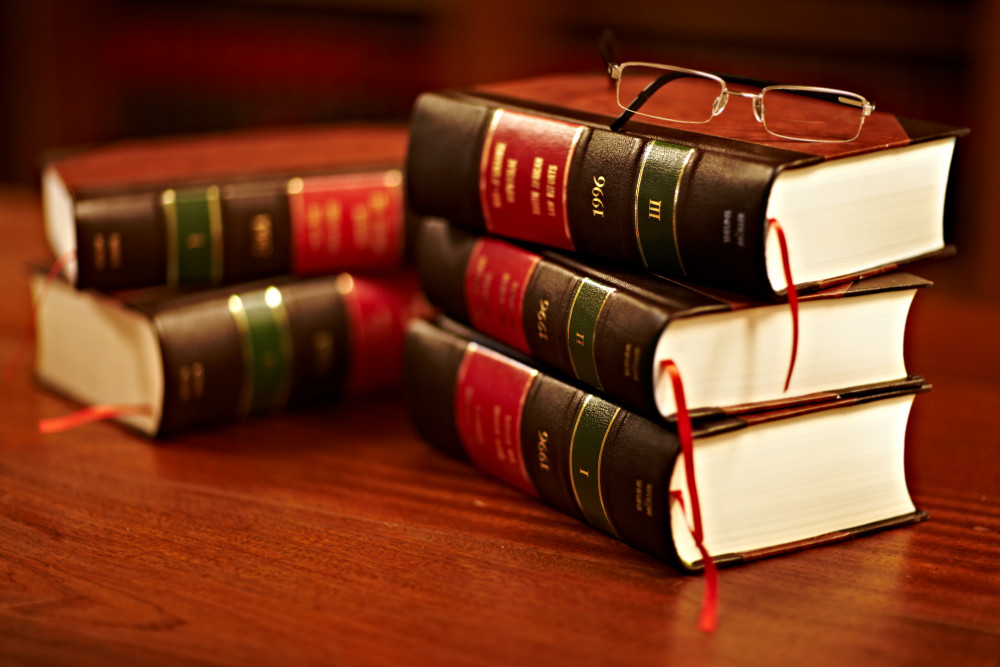-
Comment choisir un avocat adapté à votre affaire ?

Trouver le bon avocat pour vous accompagner et vous défendre dans une affaire juridique peut être un processus délicat et complexe. Pour vous aider dans cette étape cruciale, cet article vous présente les éléments à prendre en compte pour trouver l’avocat qui correspondra le mieux à votre situation et à vos besoins. Comprendre les spécificités…
-
Législation sur l’euthanasie : un enjeu juridique et éthique complexe

Face à la souffrance d’un proche, la question de l’euthanasie est souvent évoquée. Si certains pays ont adopté des législations permettant cette pratique sous certaines conditions, d’autres restent fermement opposés à toute forme d’aide active à mourir. Cet article se propose d’analyser les législations existantes en matière d’euthanasie, ainsi que les débats éthiques et juridiques…
-
Droits du salarié en télétravail : ce que vous devez savoir

Le télétravail est devenu une réalité incontournable pour de nombreux salariés, notamment en raison de la crise sanitaire liée à la pandémie de Covid-19. Cette nouvelle organisation du travail soulève de nombreuses questions juridiques et nécessite une bonne compréhension des droits et obligations des salariés en télétravail. Dans cet article, nous vous proposons un tour…
-
La formation continue des avocats : un enjeu crucial pour l’évolution de la profession

La formation continue des avocats est devenue un enjeu majeur pour les professionnels du droit souhaitant rester compétitifs et à la pointe de leur domaine. Les évolutions législatives, réglementaires et jurisprudentielles ainsi que les nouvelles technologies rendent essentiel le maintien et l’approfondissement des connaissances juridiques tout au long de la carrière. Dans cet article, nous…
-
Le rôle essentiel des notaires dans le secteur immobilier

Le secteur de l’immobilier est un domaine complexe et en perpétuelle évolution, nécessitant l’intervention de nombreux professionnels pour assurer la sécurité juridique des transactions. Parmi ces acteurs incontournables, le notaire occupe une place centrale. Dans cet article, nous vous proposons de découvrir le rôle primordial des notaires en matière d’immobilier et les différentes missions qu’ils…
-
La déontologie en avocature : principes essentiels et exigences professionnelles

La déontologie en avocature est un ensemble de règles et de principes qui régissent la conduite professionnelle des avocats. Elle vise à garantir le respect des valeurs fondamentales de la profession, telles que l’indépendance, la loyauté, la confidentialité, la probité et la compétence. Cet article vous propose un tour d’horizon complet des aspects les plus…
-
Enjeux légaux du clonage humain : défis et perspectives

Le clonage humain est un sujet qui soulève de nombreuses questions éthiques, morales et juridiques. Il s’agit d’une avancée scientifique qui pourrait révolutionner la manière dont nous abordons la reproduction humaine, mais qui comporte également des risques importants pour les individus et la société dans son ensemble. Dans cet article, nous explorerons les enjeux légaux…
-
Législation sur la reconnaissance faciale : enjeux et perspectives

La technologie de reconnaissance faciale est de plus en plus présente dans notre quotidien, que ce soit pour déverrouiller nos smartphones, faciliter les contrôles aux frontières ou encore assurer la sécurité dans les lieux publics. Toutefois, ces avancées soulèvent des questions éthiques et juridiques importantes. Cet article vise à vous informer sur les législations actuelles…
-
Droits face à l’obsolescence programmée: comment se protéger et agir en tant que consommateur

De nos jours, l’obsolescence programmée est un phénomène de plus en plus répandu, touchant divers secteurs tels que l’électronique, l’électroménager ou encore l’automobile. Face à cette réalité, il est essentiel de connaître les droits des consommateurs et les moyens d’action pour lutter contre cette pratique controversée. Cet article vous présente un éclairage sur le sujet…
-
Responsabilité des plateformes en ligne : enjeux et encadrement juridique

Les plateformes en ligne, telles que les réseaux sociaux, les forums ou les sites de partage de vidéos, jouent un rôle central dans la diffusion de l’information et l’échange d’idées. Toutefois, elles soulèvent également des questions complexes liées à la responsabilité juridique des contenus partagés par leurs utilisateurs. Cet article se propose d’examiner les enjeux…
-
Droit et économie collaborative: comprendre les enjeux juridiques

Face à la montée en puissance de l’économie collaborative, il est essentiel de se familiariser avec les aspects juridiques qui entourent ce modèle économique. Cet article vous propose d’explorer les principaux enjeux du droit et de l’économie collaborative, en abordant notamment les questions de responsabilité, de régulation et de fiscalité. Qu’est-ce que l’économie collaborative? L’économie…
-
L’impact du RGPD sur les entreprises : une analyse juridique

Depuis l’entrée en vigueur du Règlement général sur la protection des données (RGPD) le 25 mai 2018, les entreprises doivent faire face à de nouvelles obligations en matière de traitement et de protection des données personnelles. Cet article se propose d’examiner l’impact du RGPD sur les entreprises et d’analyser les conséquences juridiques pour les organisations…
-
Régulation des crypto-monnaies : les enjeux et défis pour un cadre juridique adapté

Les crypto-monnaies, ces actifs numériques basés sur la technologie de la blockchain, ont connu une croissance rapide au cours de la dernière décennie. Elles suscitent un engouement important tant auprès du grand public que des investisseurs institutionnels. Toutefois, cette évolution rapide pose d’importants défis en matière de régulation. Cet article propose d’analyser les enjeux liés…
-
Le cadre juridique du e-commerce : enjeux et régulations

Le développement fulgurant du e-commerce au cours des dernières années a profondément transformé les habitudes de consommation et les modes de distribution des produits et services. Face à cette évolution, le cadre juridique doit s’adapter pour protéger les acteurs impliqués et assurer la sécurité des transactions en ligne. Cet article vous propose de décrypter les…
-
L’évolution du droit de la famille : une adaptation aux réalités contemporaines

Le droit de la famille est une branche du droit civil qui connaît des évolutions constantes et importantes au fil des années. En effet, il s’adapte aux changements sociétaux et culturels pour mieux répondre aux besoins et attentes des familles d’aujourd’hui. Cet article se propose d’analyser les principales évolutions du droit de la famille, notamment…
-
Le besoin urgent de réguler l’ingénierie climatique

Face à l’urgence du changement climatique et aux difficultés pour parvenir à des engagements ambitieux en matière de réduction des émissions, l’ingénierie climatique apparaît comme une approche possible pour faire face à ces défis. Cependant, pour qu’elle soit efficace et éthiquement acceptable, il est impératif de mettre en place un cadre réglementaire solide qui encadre…
-
Droits d’Auteur et Streaming : Comprendre les enjeux juridiques et les responsabilités

Le développement rapide des technologies de l’information et de la communication a considérablement modifié les modes de consommation des contenus culturels. Le streaming, qui permet la lecture en continu de vidéos ou de musique sur Internet, est devenu l’une des pratiques les plus courantes. Toutefois, cette évolution soulève des questions juridiques complexes, notamment en matière…
-
Réglementations pour les Villes Intelligentes : une approche juridique et pratique

Les villes intelligentes, ou « Smart Cities », sont devenues un enjeu majeur pour les pouvoirs publics et les entreprises du monde entier. Elles visent à améliorer la qualité de vie des citoyens en utilisant les technologies de l’information et de la communication (TIC) pour optimiser la gestion des infrastructures urbaines, réduire l’impact environnemental et…
-
Neutralité du Net : Impact et Implications Juridiques

La neutralité du Net est un principe essentiel qui garantit l’égalité de traitement des flux de données sur Internet, sans discrimination, restriction ni interférence. Ce sujet est au cœur des débats depuis plusieurs années et soulève de nombreuses questions juridiques et éthiques. Dans cet article, nous analyserons l’impact et les implications juridiques de la neutralité…
